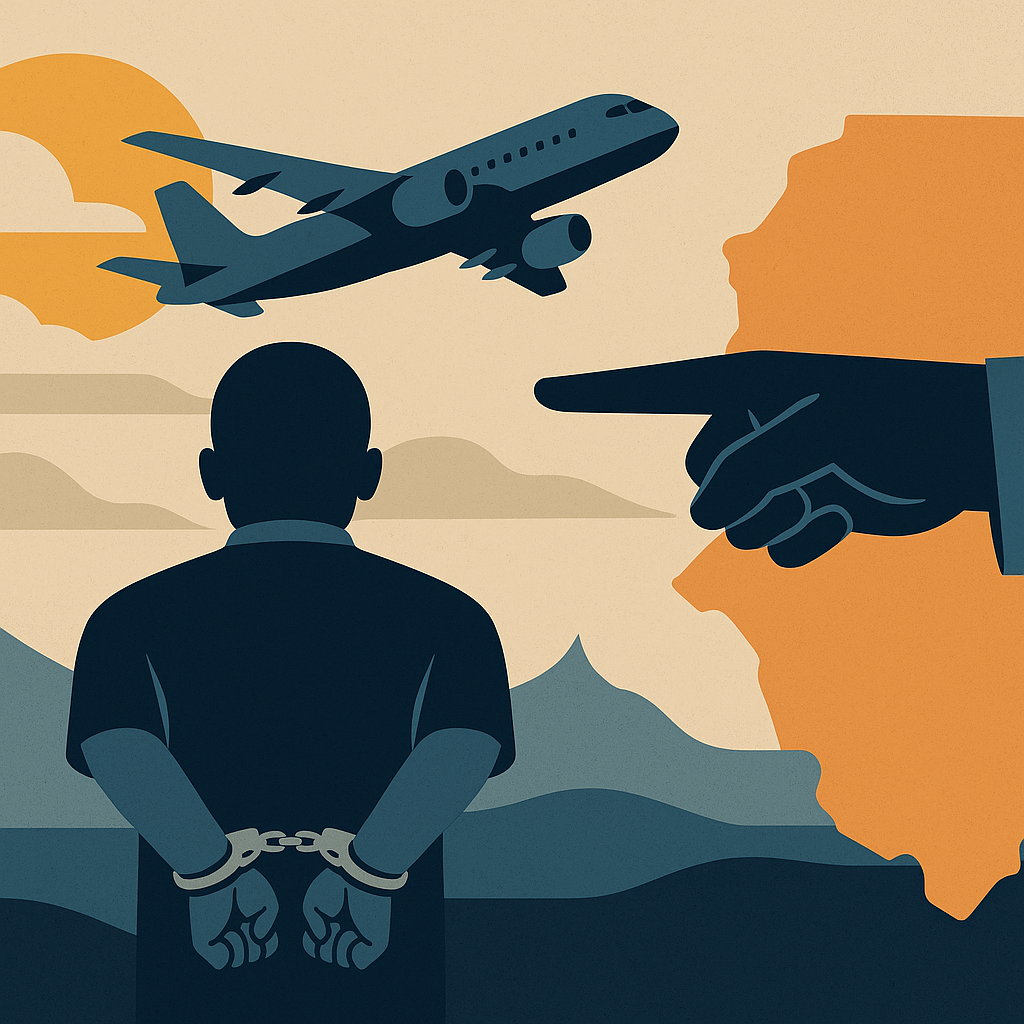The United States has deported five foreign nationals to the southern African kingdom of Eswatini as part of a broader effort under President Donald Trump’s administration to accelerate deportations to third countries. The move is part of a growing trend of transferring non-citizens—many with criminal records—to nations with which the U.S. has no previous immigration ties.
The individuals deported—originating from Cuba, Laos, Jamaica, Vietnam, and Yemen—arrived early Wednesday on what the Department of Homeland Security (DHS) described as a “safe third country deportation flight.” According to DHS spokesperson Tricia McLaughlin, the five had been convicted of serious crimes including murder, assault, and robbery. She stated that their home countries had refused to accept them, prompting the U.S. to find an alternative destination.
“These individuals were so uniquely barbaric that their home countries would not take them back,” McLaughlin posted on X. “Thanks to President Trump and Secretary [Kristi] Noem, they are now off American soil.”
Eswatini’s Response and Local Reactions
Eswatini, a landlocked country of 1.2 million people bordered by South Africa and Mozambique, has historically maintained low crime levels and is considered relatively stable. Thabile Mdluli, a government spokesperson, confirmed that the five deportees were being housed in correctional facilities and assured the public that they posed no danger to the country or its citizens.
Mdluli added that the decision to accept the deportees followed months of high-level discussions with the U.S., with the understanding that Eswatini would serve as a temporary transit point as efforts continued to repatriate the individuals to their countries of origin. However, he did not clarify how Eswatini intended to succeed where the U.S. had failed.
The deportations caught parts of the government off guard. One senior cabinet official admitted to the Financial Times that he was unaware of the development, saying, “Embarrassingly, I have no idea about this.”
Legal and International Context
The deportation comes in the wake of a U.S. Supreme Court ruling that allows the Trump administration to expedite deportations without requiring individualized hearings, provided the U.S. State Department certifies that the third country is safe for returnees.
This marks the second recent instance of deportations to Africa. Earlier this month, the U.S. deported eight men from countries including Cuba, Laos, Mexico, Myanmar, and Vietnam to South Sudan, following weeks of detention on a military base in Djibouti and legal wrangling over their fate.
Several African nations have expressed concern over mounting U.S. pressure to accept deportees. Nigeria’s foreign minister, Yusuf Tuggar, stated that Washington had lobbied multiple African states, including Nigeria, to accept Venezuelan nationals and others with criminal records. “We have enough problems of our own … for crying out loud,” he said during an interview with Channels TV.
Diplomatic Pressure and Regional Outreach
Last week, President Trump hosted the leaders of Gabon, Guinea-Bissau, Liberia, Mauritania, and Senegal for a televised lunch focusing on trade and migration. While he indicated a desire to advance “safe, third-country agreements,” the outcomes of those talks remain unclear.
Public Backlash in Eswatini
The deportations have sparked a backlash on social media in Eswatini, where many citizens criticized the move as turning the country into a dumping ground for foreign convicts. One Facebook user, Vikimpi Mngomezulu, called for an emergency parliamentary session to rescind any agreement made with the U.S. government.
“Parliament must convene an emergency session today to reverse the US decision and any government agreement it may have secretly entered into,” Mngomezulu wrote. “We accept refugees but not criminals.”
As deportation agreements with third countries become a cornerstone of Trump’s immigration strategy, the long-term implications for host nations like Eswatini remain uncertain—both in terms of public safety and diplomatic relations.



